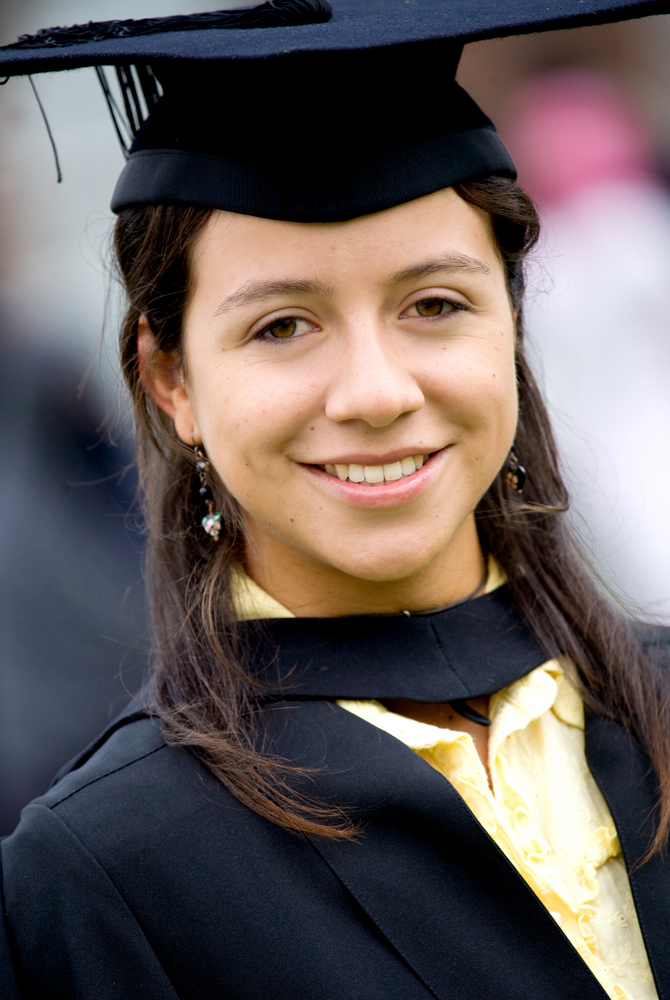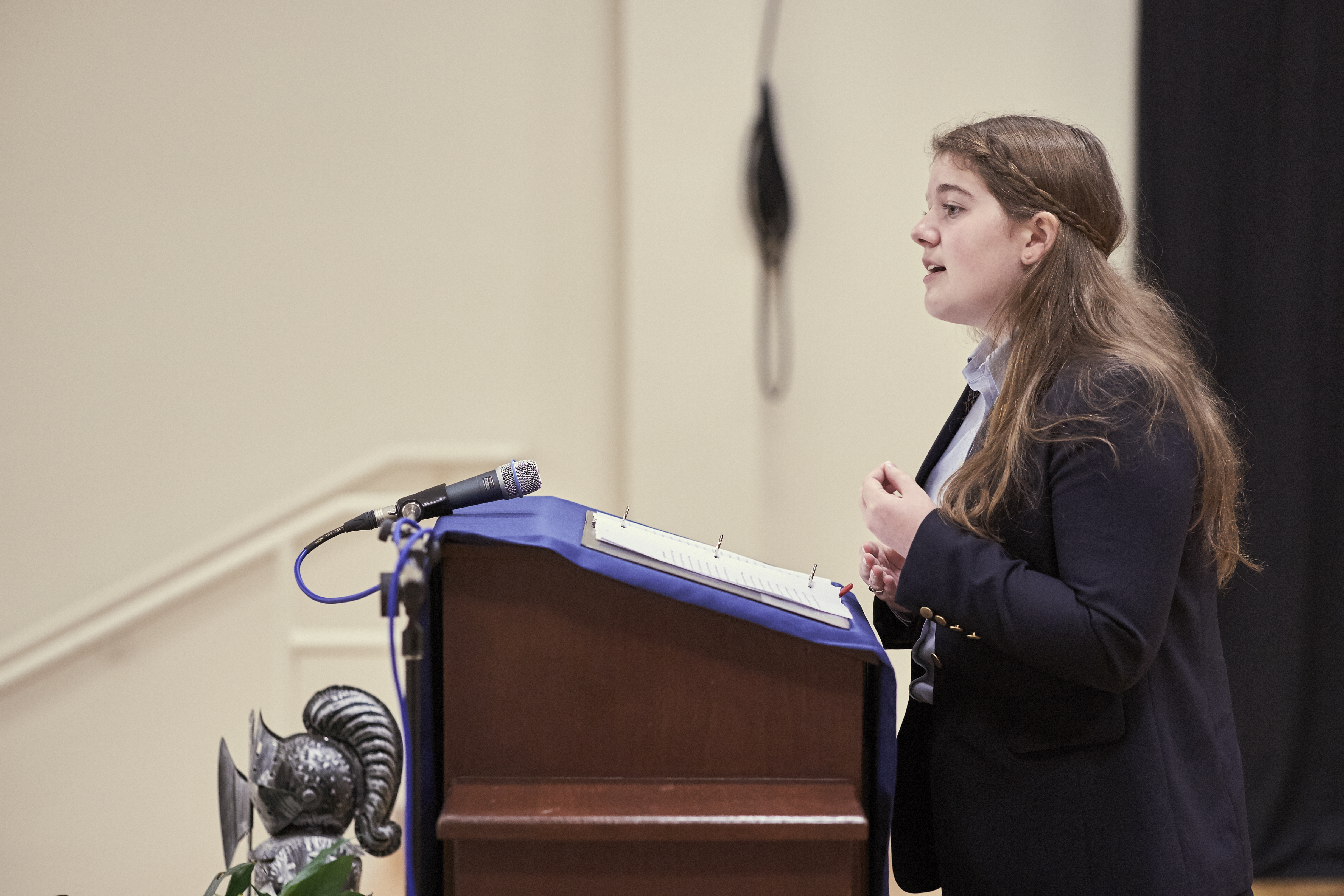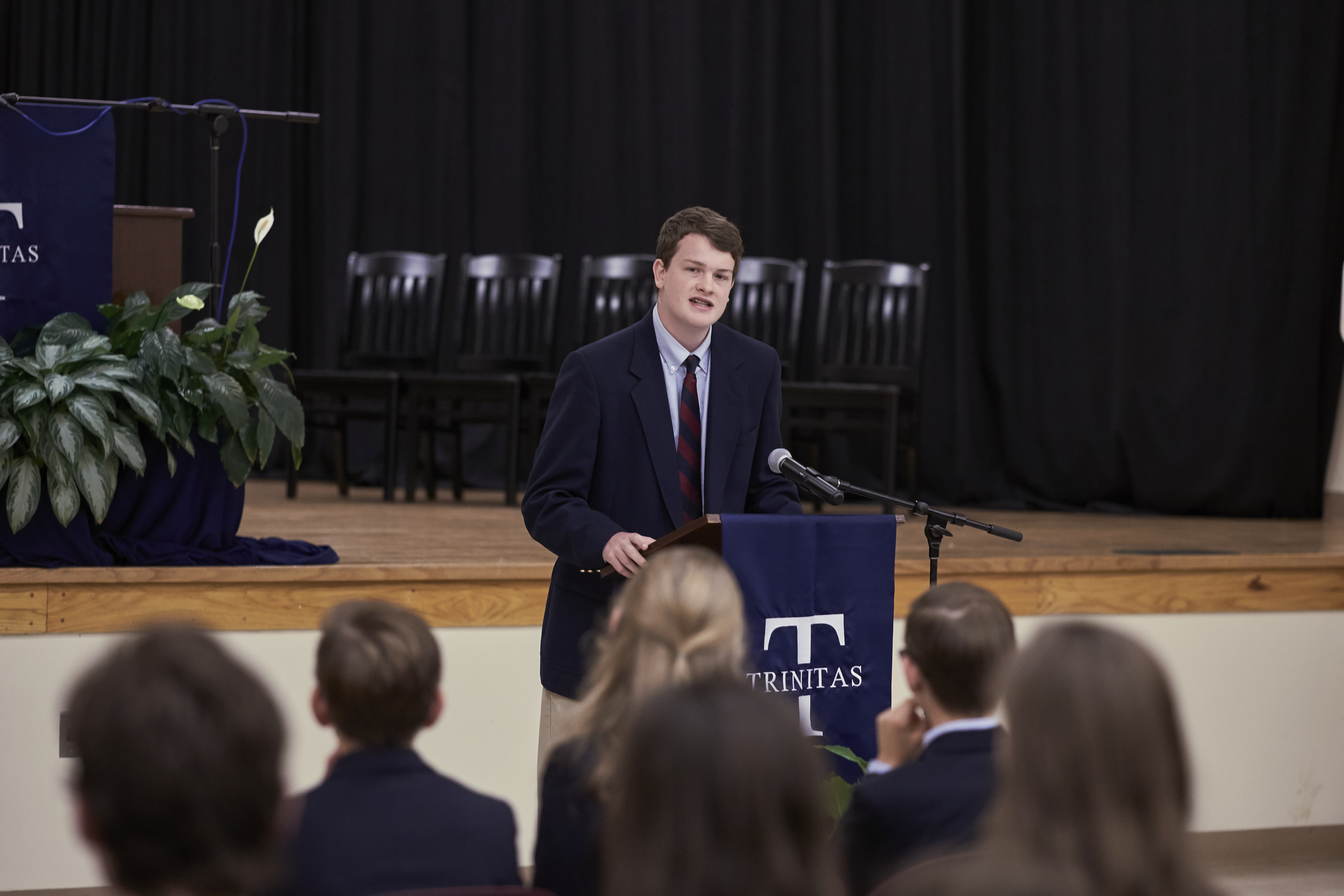Last week I used this space to mention the kinds of colleges Trinitas alumni are attending. I also mentioned last week that we had asked our alumni in a survey last summer to tell us what they are studying or had studied in college. The reason I want to talk about our alumni’s chosen fields of study this week is not to harp on college more, but to hopefully add to the case that a classical education can be good preparation for lots of different endeavors.
.jpg?width=300&name=AlumniChristmasParty%20(24).jpg) Do you ever wonder where all the Trinitas graduates go after graduation night? Most of them eventually trickle back to campus for a visit; in fact, many of them visit often. A few alumni, though, have moved on so fast and so far that they haven’t stopped even once to visit since the day they left. This past summer James Cowart spent a lot of time catching up with as many of the ninety-four Trinitas alumni as possible, and we’ve taken several opportunities to share his findings with you in this space. This week, I want to leave you with some idea about where all the Trinitas alumni have gone.
Do you ever wonder where all the Trinitas graduates go after graduation night? Most of them eventually trickle back to campus for a visit; in fact, many of them visit often. A few alumni, though, have moved on so fast and so far that they haven’t stopped even once to visit since the day they left. This past summer James Cowart spent a lot of time catching up with as many of the ninety-four Trinitas alumni as possible, and we’ve taken several opportunities to share his findings with you in this space. This week, I want to leave you with some idea about where all the Trinitas alumni have gone.
Topics: Blog Posts, Classical Education, Alumni, College Admissions
Last week I revealed that 92% of Trinitas alumni reported they were well prepared for college. Of the few that didn’t feel prepared, four Trinitas alumni stated they started out behind their college classmates in math; two of them were engineering majors, and the other two did not mention their majors in the response. This week, I will explain why they may have started out behind and also talk about where classical students stand in math compared to students in a modern, STEM-focused education model.
Topics: Blog Posts, Classical Education, Alumni, College Admissions, Mathematics
Recently I proposed that the classical school movement is seeking to preserve the heritage of western civilization, in part, by teaching and training good oratory skills. I also explained some of the ways Trinitas begins this teaching and training as early as kindergarten. If the beginning is, as I mentioned last week, as simple as teaching five-year-olds good eye contact and clear enunciation, then the end of that training is guiding eighteen-year-olds through the writing, presentation, and defense of a senior thesis. There are, of course, many, many varied components between those two stages but perhaps none as important and exciting as the John Chrysostom Oratory Competition.
Topics: Blog Posts, History, Classical Education, Public Speaking
From Ancient Greece to the founding of the United States, one mark of western civilization has been excellent oratory. From Pericles to Patrick Henry and John Chrysostom to Thomas Jefferson (with Demosthenes and Cicero thrown in for good measure), the roots of western civilization have been nourished for more than two-thousand years by those with the ability to articulate lofty ideals in a way that leads to both understanding and inspiration in the hearer. We could call them the Silver Tongues of the West. But the West isn’t what it used to be. Oratory now seems most often employed to convince us to spend money on some product or to vote for a particular candidate. Of course it has always been used in this way, but it seems that in times past, good oratory was more memorably used by men such as those mentioned above to convince others of good ideas, the kind of ideas that change the world for the better.
Topics: Blog Posts, History, Classical Education, Public Speaking
When you come to Trinitas, what jumps right out at you is the fact that it is a different sort of school than your common public or private school, and even different from most private Christian schools you will have been acquainted with in your life. That isn’t to say that there aren’t other schools like Trinitas in the world, and it isn’t even to say that Trinitas is the best school that you will ever have been acquainted with. It is different, and that should be obvious. One of the main catalysts for that difference is the pursuit of truth, goodness, and beauty in our school life, not only in the classroom, but also in the hallways, at the lockers, on the ball field, and in short, everywhere the school has any presence as an institution.
Topics: Blog Posts, Classical Education, Truth, Goodness, and Beauty
A pretty famous guy once said that the goal of a good education is not to make one think right, but to make one act right. I’m paraphrasing, of course. I can’t recall the exact quote or the name of the fellow who uttered it, but the gist of it is hard to forget. Now, we all know that education does not save—only Jesus can do that—but education can and does form virtue in students when it is done well by parents and teachers; and virtuous students, after all, are students who act right. Last week I asserted that a good education teaches “a way of being.” Another way of saying it is to say that a good education forms virtue in students so that they not only think right, but they also act right. And what better way to form virtue than by reading old books?
Topics: Blog Posts, School Life, Classical Education, True Education, Reading
Perhaps we should ponder the meaning of the word “education” before we try to discern what a good education is. The word is derived from the Latin infinitive educāre or educere or a combination of the two. Either way, the word carries the meaning “to lead” or even “to lead out.” Understood this way, it is easy to see that any good education must lead the learner to something. Anything that claims to be education but is passive in its application, perhaps allowing the learner to find his own way, isn’t exactly education. To be educated then is to necessarily be led out of ignorance and into a particular knowledge, a particular way of understanding that produces wisdom. Such is a proper classical Christian education.
Topics: Blog Posts, Classical Education, Christian Education, True Education, Christian Living





.jpg)

.jpg)

